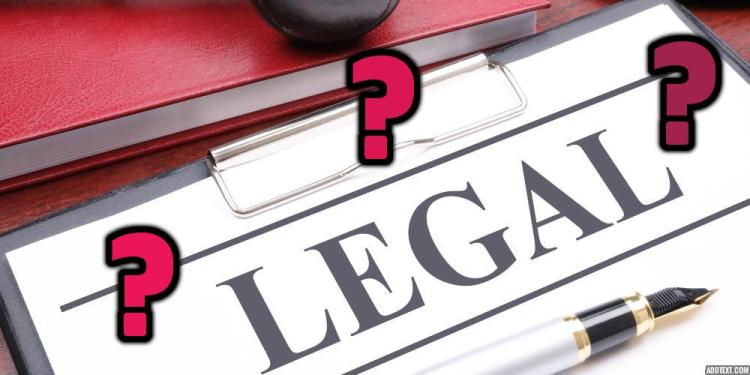Offshore Gambling Platforms – Are They Legal And Safe?
Posted: August 26, 2023
Updated: August 26, 2023
In any countries around the globe, gambling on websites coming from abroad is illegal. These are the so called "offshore" casinos. Though many of them do have a real gaming licence, the problem is that it's often issued by a less-than-reputable authority. This means, should you expereince any problems with your cash, there's no one to turn to for help.

In any country around the globe, gambling on websites coming from abroad is illegal. These are the so-called “offshore” casinos. Though many of them do have a real gaming license, the problem is that it’s often issued by a less-than-reputable authority. This means, that should you experience any problems with your cash, there’s no one to turn to for help.
Is Engaging in Offshore Gambling Against the Law?
Are you wondering about the legality of offshore gambling? This question is on the minds of many players worldwide. In short, the answer is no, offshore gambling is not considered illegal. This explains why many players opt to place their trust in offshore gambling platforms, despite acknowledging certain inherent risks. Does this involvement imply complicity? Generally not, especially in the majority of global jurisdictions. However, it’s only fair to mention that players do bear significant risks.
Offshore gambling platforms lack the need to fully compensate you, honour your bets, or safeguard your personal data. This is because they operate without oversight from any regulatory authority. Armed with this knowledge, the decision to play at offshore gambling sites rests with you. This Gamingzion.com article aims to provide you with essential insights before making your first offshore wager. This is regardless of whether you’re a newcomer or already engaged in offshore betting and gambling.
Legality of Offshore Gambling and Applicable Laws
Contrary to what many might think, most countries don’t classify offshore gambling websites as illegal, especially for individuals who choose to deposit funds and gamble on these platforms. Different nations adopt varying strategies towards such sites.

Some governments compile blocklists and require Internet Service Providers (ISPs) to block access to offshore gambling platforms labeled as “illegal.” Australia and the Netherlands offer prime examples of this approach. A similar scenario holds true for consumers in the United States. Moreover, there exists no federal law designating individuals who bet on offshore gambling sites as criminals.
Should I Worry About Penalties For Gambling On Offshore Platforms?
According to online gambling news in the UK, in most cases, there’s little need for worry. Unless you’re actively helping offshore gambling sites to operate within your country’s jurisdiction. Meaning the chances of facing legal consequences or penalties due to your involvement with offshore gambling are quite slim. It’s plausible to argue that you might not have been aware of the legal nuances. While this might seem a bit evasive, the reality is that numerous online casino players are genuinely unaware of which gambling websites are properly regulated and licensed, and which aren’t. In fact, even in the United States, people continue to engage in offshore gambling.
This can happen both out of choice and due to lack of knowledge. However, the American Gaming Association has noted a growing trend of people moving toward regulated sports betting markets, indicating a rising awareness and preference for legal options. To put it succinctly, merely placing bets on an offshore gambling site is unlikely to result in fines or legal repercussions. Nonetheless, assisting such unregulated operations could potentially get you into trouble with authorities in your respective jurisdiction.
Who Grants Licenses To Offshore Gambling Platforms?
When exploring the legality of offshore gambling, it’s important to consider whether these offshore platforms are subject to any form of regulation. There are regulatory bodies established within the offshore gambling industry, and many of these hold international recognition. This has led to the growth of what would otherwise have been an illegal gambling sector into a thriving international iGaming industry.
Curacao
Curacao stands out as one of the most best known offshore regulatory bodies. Operating within the Netherlands Antilles, it collaborates closely with the Netherlands to oversee the gambling industry. However, there are calls for it to strengthen its regulations, driven by mounting international pressure from countries like Australia.
Costa Rica
In the context of gambling authorities, Costa Rica is an intriguing exception. Although numerous major offshore gambling websites are licensed under its jurisdiction, Costa Rica itself lacks a proper dedicated gambling commission.
Panama
Over the years, Panama has become a preferred hub for gambling enterprises, particularly since the inception of sports gambling, which initially revolved around phone-based betting.

Strikingly, Panama lacks an official licensing body that can provide legitimate certification for gambling sites. Nevertheless, many offshore-based platforms assert Central American tax haven certification.
Kahnawake
Operating within the tribal expanse of Canada, Kahnawake holds a unique sovereign status. Managed by the Morris Mohawk group, this region hosts remote gambling servers for websites spanning North America. It is among the more credible “offshore” licensing bodies. Our favourite online betting platform, 22Bet Casino, has a licence from the Kahnawake Gaming Commission, as well as a more legit licence from probably the most reputable licencing authority in the world. Namely, the UK Gambling Commission.
Barbuda and Antigua
Barbuda and Antigua, another notable Caribbean nation, extends registration services to offshore gambling websites. This jurisdiction has been engaged in a dispute with the United States regarding the obstruction of payments to its gambling platforms, contending that the U.S. actions have inflicted financial harm.
What Are The Challenges Associated with Offshore Gambling Websites?
Undoubtedly, issues arise when there is insufficient oversight. Despite our occasional reservations about governmental and institutional interventions, including perceived excessive taxation and intrusion, these mechanisms play a crucial role in safeguarding consumers on a broader scale. While you might not feel an immediate impact if you avoid paying taxes, these safeguards protect others who do contribute their share.
Bearing this in mind, we’ve mentioned that the most prevalent aspects to be aware of concerning the hazards and challenges tied to offshore gambling and the platforms that operate within this realm. These elements generally apply across poker rooms, sportsbooks, and online casinos. While they might not always be universally applicable, they do tend to represent the present conditions with offshore gambling.
Lack of License Means Absence Of Oversight
Today, the general consensus indicates that legitimate online casino operators typically have licenses from reputable authoritative bodies. However, in the case of offshore gambling operators, they might still have such licenses, but it’s not a certainty. Even if they do, these licenses could originate from jurisdictions with relatively lax control over their license holders.
For instance, Curacao, a favored destination for some offshore websites, is currently facing pressure from the Australian Media and Communications Authority (ACMA) to actively monitor and intervene in the activities of its license holders following reports of misconduct.
Limited Range Of Deposit Options
Once again, this primarily holds true for the United States. Offshore gambling platforms that target American users provide a narrower selection of payment choices. Frequently, the use of cryptocurrency becomes necessary to circumvent potential blocking of payments by the US Banking System. A positive aspect is that if a payment is declined, it’s returned to the sender. Nonetheless, the downside is that opting for an entirely new payment method, especially cryptocurrencies, can be exremely cumbersome when all you want to do is place a bet.
Withdrawals Are Sluggish
Another noteworthy concern with offshore gambling are the restrictions and sluggishness of withdrawals. Consequently, any winnings might have to be withdrawn over several months instead of immediately.
Transactions Have Fees
Due to the more complex nature of offshore transactions, there are often fees unless you opt for a specific payment method, such as Bitcoin. For instance, cashing out a check might entail a steep cost of up to $50.
Bonuses Might Be Revoked without Notice
Certain players have voiced concerns about having their bonuses revoked without advance notice. This situation works both ways. Sometimes, players neglect to thoroughly review the terms and conditions.
Limited Customer Support
A glaring drawback linked to offshore gambling operators has to do with their customer support approach. While the array of customer support options is limited, their effectiveness is often lacking. A considerable number of the messages received are either automated responses from bots or directly copied from the Terms and Conditions. This doesn’t always provide valuable assistance.
How Can I Determine the Legality of an Offshore Gambling Site?
The legality of such sites primarily hinges on your location in the world. Some jurisdictions automatically label offshore gambling websites as “illegal.” Conversely, places like Canada may lack a specific designation for them, even permitting their operation under certain predefined conditions. To ascertain the legality in your country, you should follow two key steps. Firstly, acquaint yourself with the relevant local legislations. These might encompass national statutes, as well as regional regulations that could take precedence.
Subsequently, scrutinize the licensing and headquarters of the offshore gambling site. Understandably, there exist only a handful of credible licensing authorities that function as reliable watchdogs for licensing, the prominent ones being Curacao and Kahnawake. Others possess a recognized standing within the offshore gambling sphere and can serve as a reference point.
However, it’s important to note that they might not issue licenses under officially sanctioned governmental bodies. At the end of the day, it’s always best to only spend your money on truly legitimate gaming websites. One of our recommendations, is 22Bet Casino, who are without a doubt, one of the best online casino sites in the UK.
Click here to try the live casino at 22bet Casino











